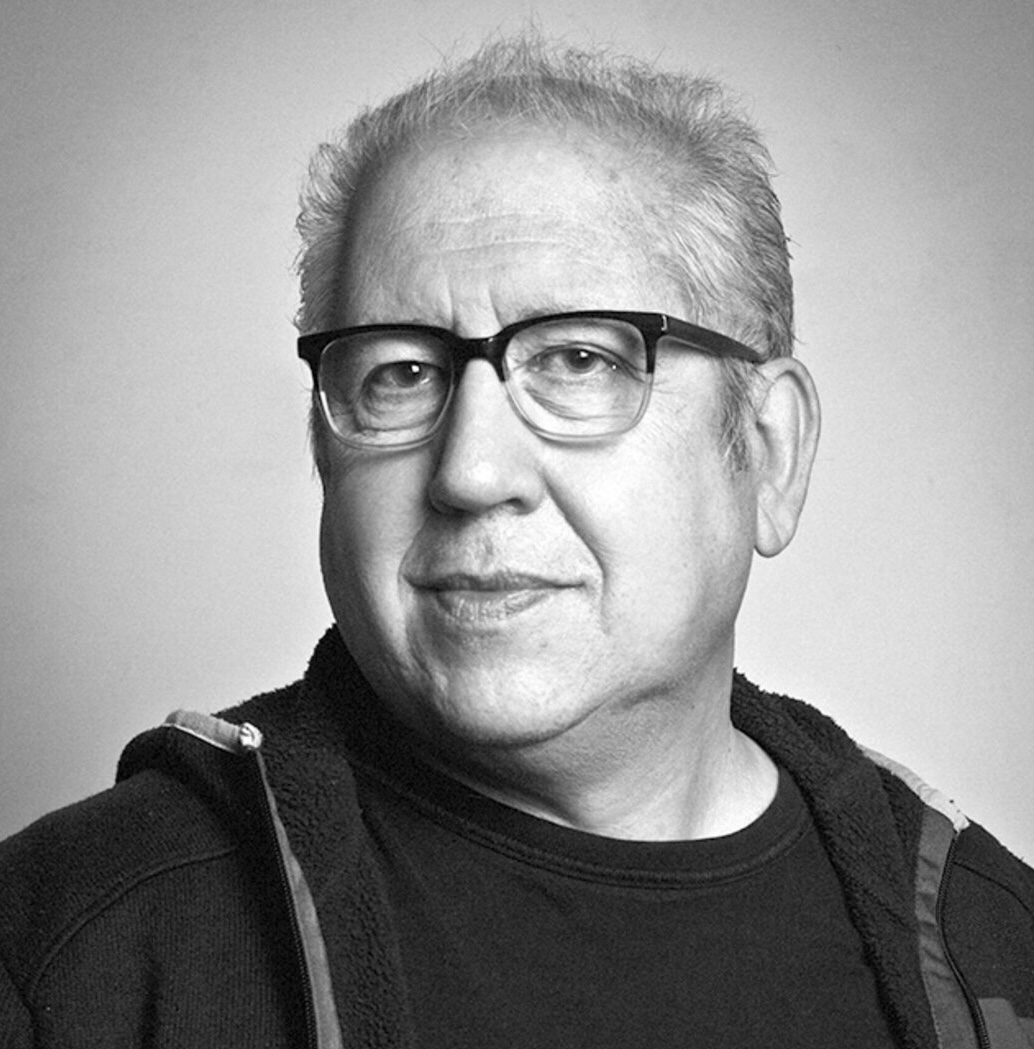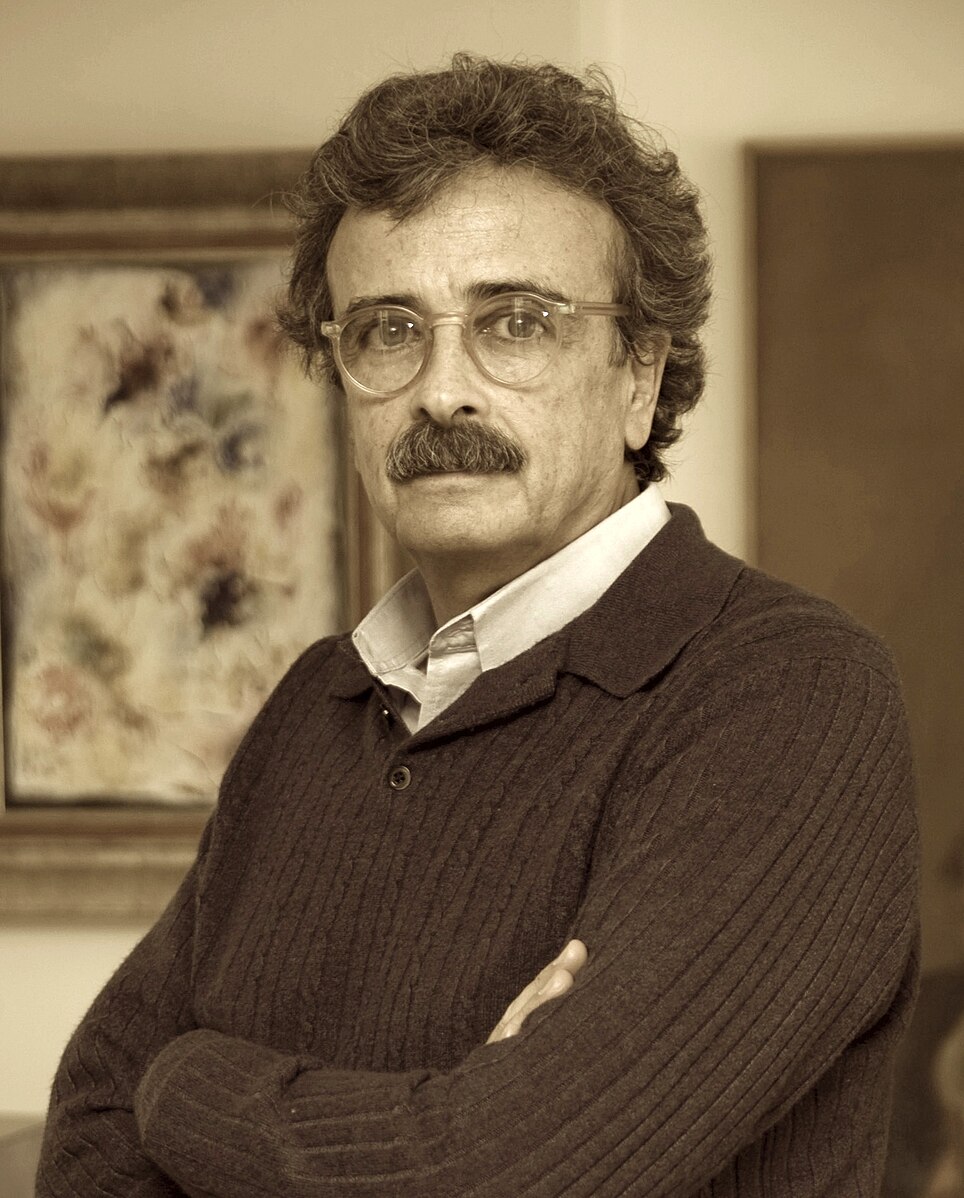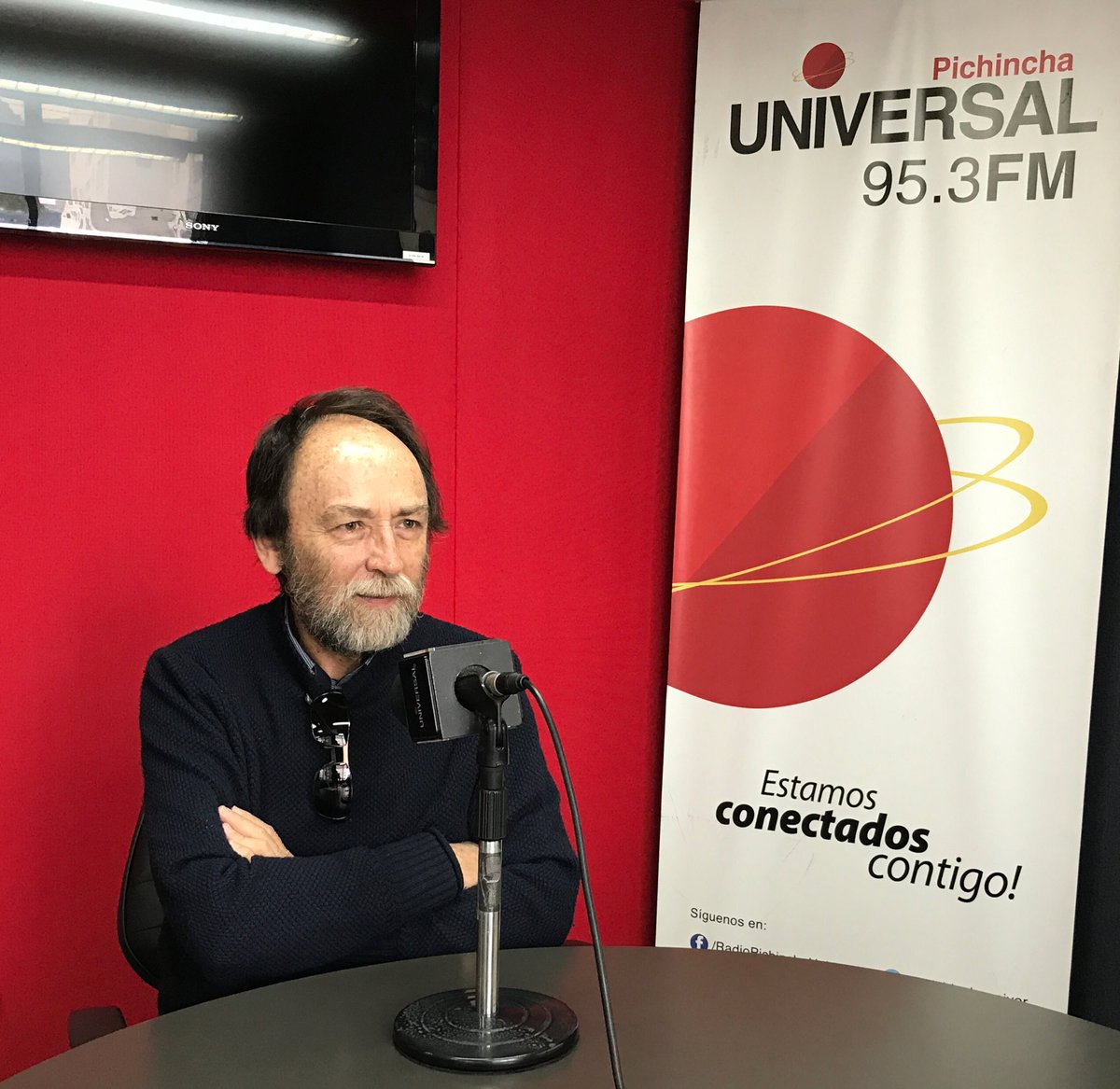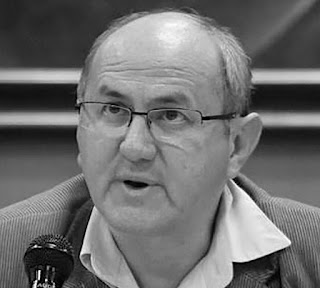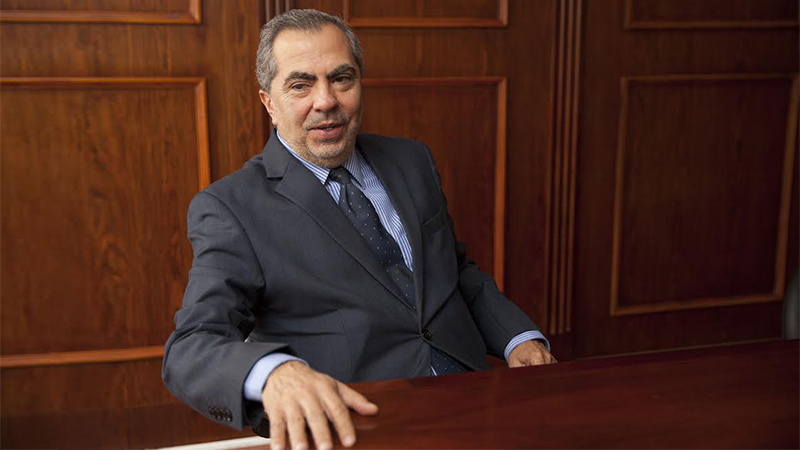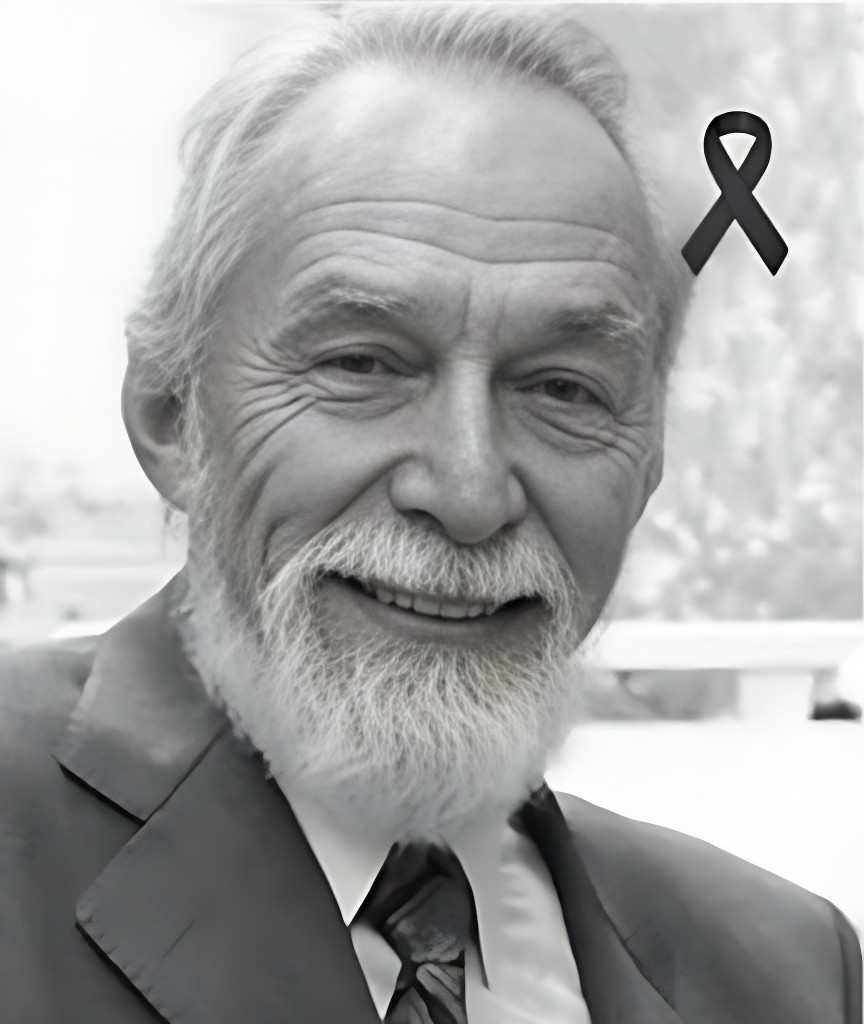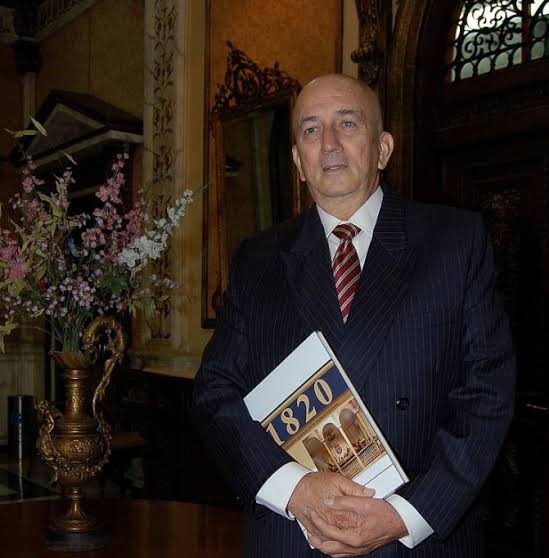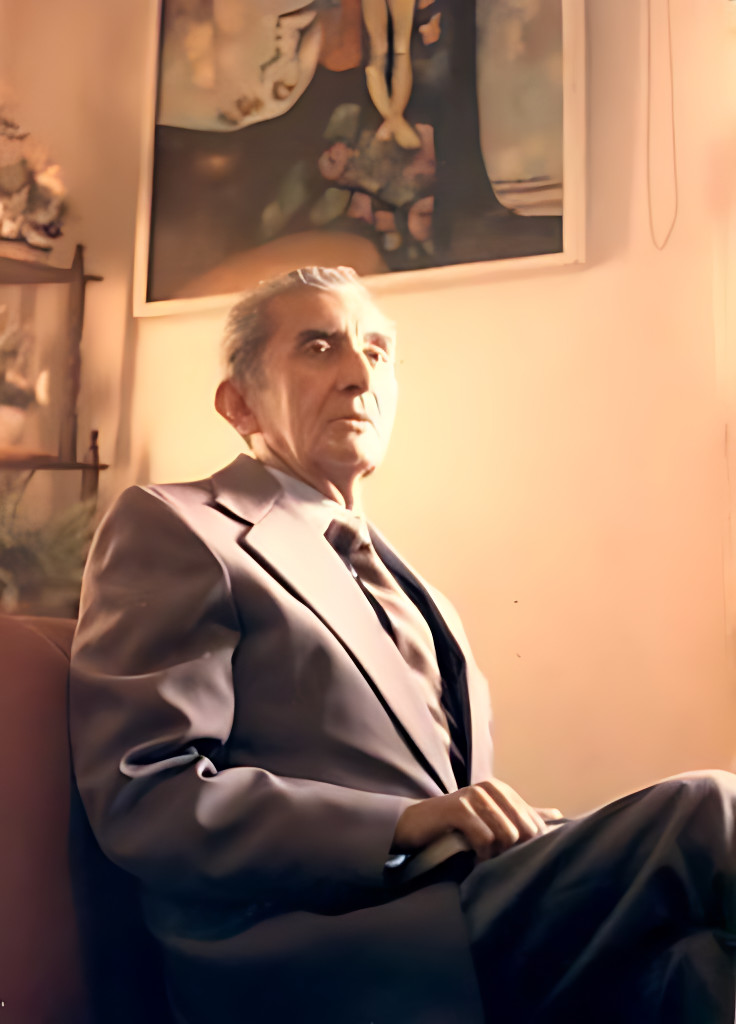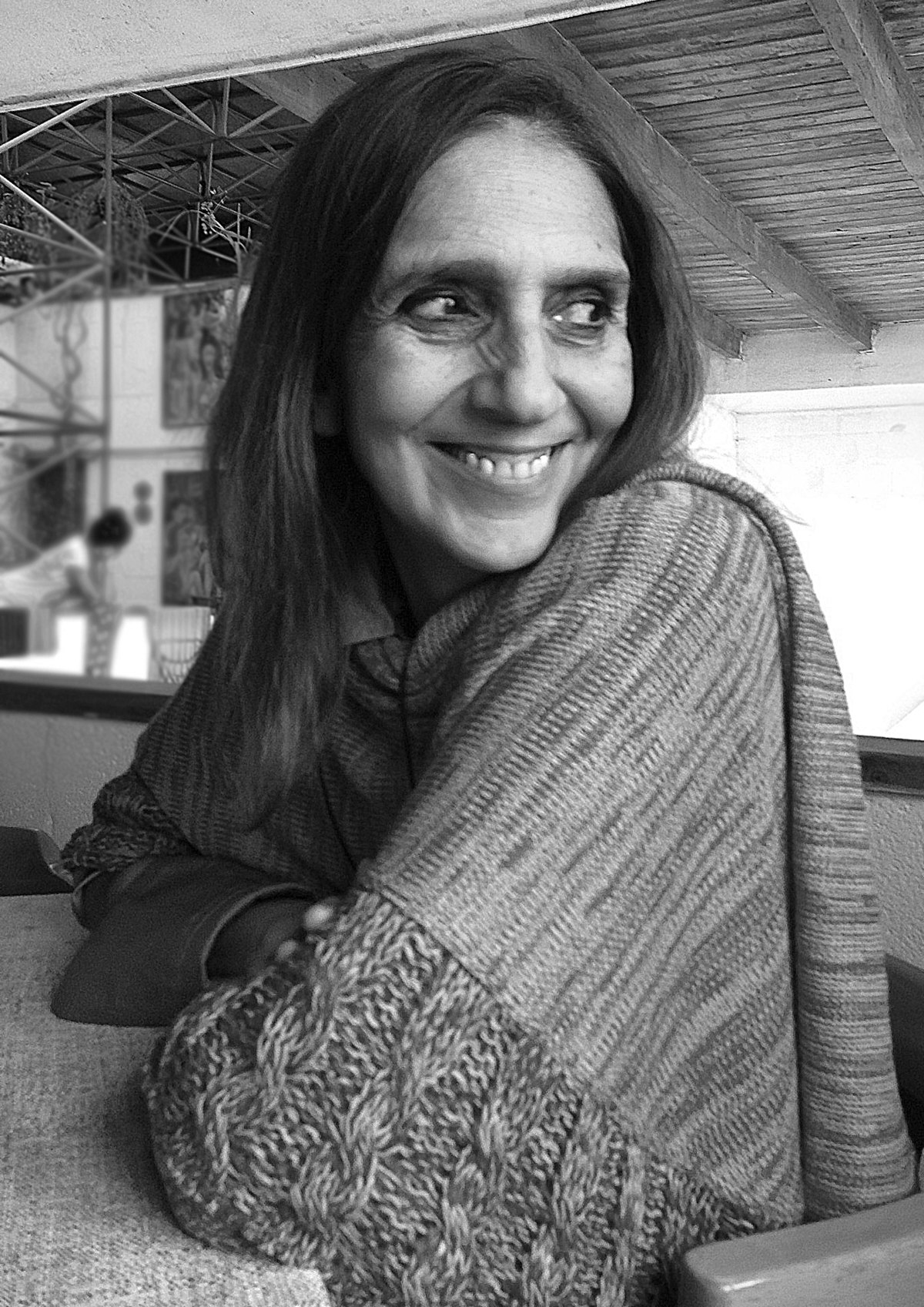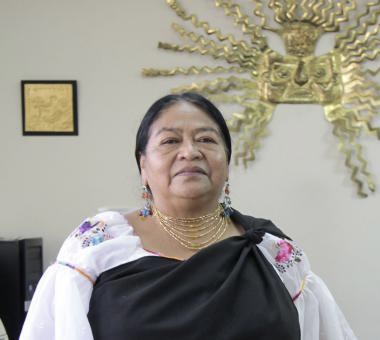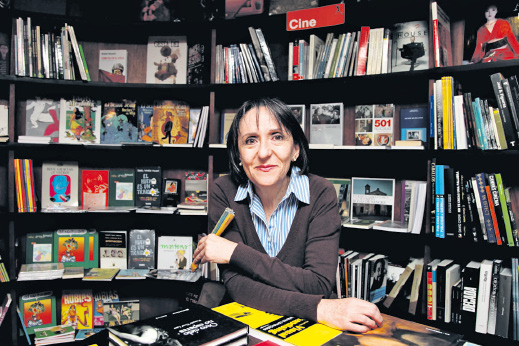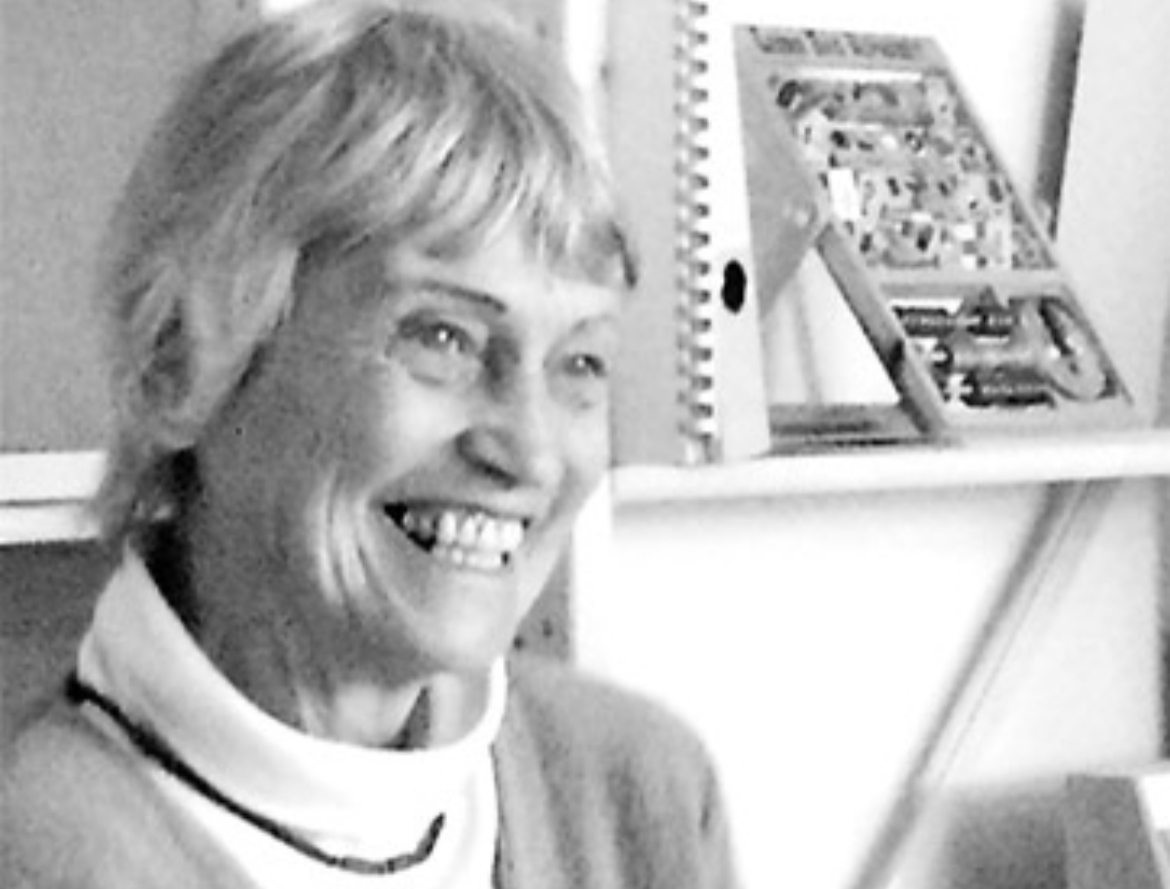Arístides Vargas (Córdoba, Argentina, 1954) is an acclaimed Argentine-Ecuadorian playwright, whose work delves into the profound impact of exile. Forced to flee to Ecuador in 1975 at 20, escaping persecution by the Triple A, he found solace in theater. Vargas co-founded Malayerba in 1979, providing a haven for fellow exiles. His plays, over 20 in total, explore the trauma of violence and displacement through surreal, non-realistic narratives infused with elements like playfulness, forgetfulness, dreams, and somnambulism. Vargas blends nostalgia with humor, celebrating laughter as a healing force. In 2021, directors staged his works, showcasing his ability to address exile and Latin America’s history universally. His contributions continue to illuminate collective memory and historical understanding.
Continue reading “Arístides Vargas”Posts
Diego Cornejo Menacho
Diego Cornejo Menacho (Quito, March 18, 1949) is a versatile Ecuadorian artist. He’s a writer, painter, and journalist. He has been a professor, columnist, and deputy director for newspapers, and he even directed regional news. Notably, he won the “Joaquín Gallegos Lara Prize” in 2008 for his novel “Miércoles y estiércoles” and received the “Gran Premio SIP-Libertad de Prensa” in 2013. He’s also been honored with the “Eduardo Kingman” Cultural Merit Decoration in 2014. Cornejo Menacho is a celebrated figure in Ecuadorian literature, with a collection of novels and journalistic works reflecting his deep connection to Ecuadorian culture.
Continue reading “Diego Cornejo Menacho”Roque Espinosa
Roque Espinosa Chávez (1951) is a distinguished historian and author, renowned for his in-depth and critical analysis of Latin American history, with a particular focus on Ecuador. His expertise is not limited to historical analysis; he has also made significant contributions in the realm of fiction, as evidenced by his work “Me descambias la vida,” which was honored with the prestigious Premio Joaquín Gallegos Lara. This recognition showcases his versatility and skill in both academic and literary domains. His work, characterized by meticulous research and theoretical rigor, has significantly contributed to the understanding of regional economic and social history. Notable publications include “Hacienda, comunidad y concertaje” (1986), “Parentesco y reproducción en Manabí” (1990), and “Las fronteras con Colombia” (2008). His book “Desmemoria y olvido: la economía arrocera en la Cuenca del Guayas 1900-1950,” a refined version of his Cum Laude doctoral thesis, stands as a testament to his scholarly excellence. This work delves into the rice industry in Ecuador, illuminating a previously understudied aspect of the nation’s economic and social history. Espinosa’s ability to intertwine economic data with cultural and social insights has not only enriched academic discourse but has also brought to light the lesser-known facets of Ecuador’s past. His dedication to uncovering and critically analyzing historical narratives has earned him recognition and respect in academic circles.
Continue reading “Roque Espinosa”Raúl Serrano Sánchez
Raúl Serrano Sánchez (Arenillas, December 17, 1962) is a multifaceted figure in the literary world, known for his roles as a writer, literary critic, essayist, journalist, and university professor. He has made significant contributions to Ecuadorian literature, with several published works including short stories, a novel, and academic essays. His notable works include “Las mujeres están locas por mí” (a collection of short stories), and “Un pianista entre la niebla” (a novel). Sánchez’s literary prowess has earned him various accolades such as the Joaquín Gallegos Lara Prize in 1997, the National Angel F. Rojas Novel Prize in 2015, and the Manuela Sáenz Prize in 2014. He is an active academic, currently teaching at the Universidad Andina Simón Bolívar in Ecuador, and has contributed to various editorial boards and literary journals, showcasing his deep involvement in the literary scene. Sánchez’s work extends to editing and providing critical introductions for other writers’ works, emphasizing his comprehensive engagement in the literary field.
Continue reading “Raúl Serrano Sánchez”Galo Galarza Dávila
Galo Galarza Dávila (Guaranda, 1956) is a renowned Ecuadorian diplomat and accomplished writer, whose career spans several decades of influential work in international relations and literature. Educated at the prestigious Pontificia Universidad Católica and Universidad Central del Ecuador, he holds degrees in Law and International Sciences. Galarza Dávila’s diplomatic journey is marked by his tenure as the Ecuadorian Ambassador to Mexico from 2006 to 2012 and pivotal roles in Ecuador’s Ministry of Foreign Affairs, including Subsecretary positions. As a writer, he has contributed significantly to Ecuadorian literature with works such as “En la misma caja” and “La Dama es una trampa.” These publications not only showcase his narrative prowess but also reflect his deep insights into social and political issues. His literary excellence has been recognized with various accolades. Galarza Dávila’s distinguished service earned him international honors, including Mexico’s Order of the Aztec Eagle, the highest award for foreigners. His career encapsulates a blend of diplomatic finesse and literary acumen, making him a prominent figure in Ecuador’s cultural and political landscape.
Continue reading “Galo Galarza Dávila”Jaime E. Rodríguez O.
Jaime Edmundo Rodríguez Ordóñez (Guayaquil, April 12, 1940 – Los Angeles, USA, June 27, 2022) was a celebrated Ecuadorean-American professor, researcher, and historian. His work focused on the history of New Spain, Mexico, the Presidency of Quito, and the independence period in Hispanic America. Rodríguez Ordóñez’s notable contributions to historiography include his profound analysis of the impact of Spain’s Constitutional Monarchy and the independence movements in Latin America. His works, such as “Nosotros somos ahora los verdaderos españoles” and “The Forging of the Cosmic Race,” offer insightful reinterpretations of colonial Mexico and the emergence of Hispano-American identity. He held academic positions at prestigious institutions, including the University of California, Irvine, and was a member of the National Academy of History of Ecuador and the Mexican Academy of History. Rodríguez Ordóñez’s unique perspective on the interconnectedness of Hispanic America with global events during the Atlantic Revolutions significantly enriched the understanding of Latin American history and its complex journey towards independence and nation-building.
Continue reading “Jaime E. Rodríguez O.”Efrén Avilés Pino
Efrén Avilés Pino (Guayaquil, February 26, 1947 – Ibidem, December 31, 2009) was a renowned Ecuadorian historian, writer, and university professor. Educated at the University of Guayaquil, he significantly contributed to Ecuador’s historical research, emphasizing the Province of Guayaquil’s role in national independence. His acclaimed works include the “Enciclopedia del Ecuador” and “Historia del Ecuador.” Also notable in the music industry, Avilés composed the anthem for Club Sport Emelec. A member of the National Academy of History, he resigned amid controversies over historical perspectives. Honored with the Merit of Commandeur in 2002, his legacy in Ecuadorian history and culture is enduring.
Continue reading “Efrén Avilés Pino”Linda Alexander Rodríguez
Linda Alexander Rodríguez (July 21, 1943) is an accomplished American historian and academic, recognized for her deep engagement with Latin American history, particularly focusing on its economic and military aspects. Born in Texas, Rodríguez earned her B.A. in Economics and History from the University of Texas, Austin in 1968, followed by a Master’s in Latin American Studies in 1972, and a Ph.D. in History from the University of California, Los Angeles. Her notable academic career includes serving as a professor at the University of California in Riverside (1976-1978) and at UCLA (1981-2003), where she also coordinated and later assisted in directing the Center for Latin American Studies. Rodríguez has made significant contributions to the understanding of Ecuador’s historical development, as evidenced in her works like “Rank and Privilege: The Military and Society in Latin America” and “The Search for Public Policy: Regional Politics and Government Finances in Ecuador, 1830–1940.” Her insights into the dynamics of the Ecuadorian Liberal Revolution and its fiscal policies have been particularly influential. A member of the National Academy of History of Ecuador since 2014, Rodríguez’s scholarly work continues to illuminate the complex interplay of politics and economics in Latin America.
Continue reading “Linda Alexander Rodríguez”Jenny Estrada
Jenny Estrada, or Jenny María Estrada Ruiz (Guayaquil, June 21, 1940 – February 9, 2024) was an eminent Ecuadorian writer, journalist, and historian. Her impactful career began at “El Universo” in 1968, where she was the first woman to serve as an editorialist, pioneering female representation in Ecuadorian journalism. Estrada’s work, deeply rooted in socio-political and cultural analysis, reflects her commitment to uncovering Ecuador’s diverse narratives, particularly the roles and challenges of women. Her notable literary contributions include “Las mujeres de Guayaquil, siglo XVI al XX” and “Matilde Hidalgo de Prócel, una mujer total,” which highlight women’s significant but often overlooked contributions to Ecuadorian history. Estrada’s dedication extends beyond writing; she was instrumental in founding the “Museo Municipal de la Música Popular Julio Jaramillo,” preserving Ecuador’s rich musical heritage. Her esteemed memberships in the National Academy of History of Ecuador and the Spanish Royal Academy of History, along with numerous cultural merit awards, mark her as a pivotal figure in shaping Ecuador’s cultural and historical consciousness. She worked as a columnist under the pseudonym María Ignacia.
Continue reading “Jenny Estrada”Jorge Vanegas Muñoz
Jorge Vanegas Muñoz (Guayaquil, September 6, 1923 – ibidem, April 6, 2003) the distinguished Ecuadorian poet, novelist, and journalist, left an enduring literary legacy that transcends borders. His notable works, including “Los sangrientos estambres,” “Esqueleto en abril,” and “Los escarabajos de un Virey,” stand as testaments to his poetic prowess and his commitment to the art of verse. In 1975, he received the prestigious National Poetry Contest Ismael Pérez Pazmiño award from the esteemed Guayaquil newspaper “El Universo.” Beyond his literary contributions, Jorge’s advocacy for peace, as seen through his participation in the Committee of Ecuadorian Writers for Peace and representation at the World Congress in Stockholm, reflects his dedication to using poetry as a force for harmony in a world marked by division. His life’s work continues to inspire and captivate readers, solidifying his place in Ecuador’s literary pantheon and beyond.
Continue reading “Jorge Vanegas Muñoz”Evelia Peralta
Evelia Peralta (Tucumán, Argentina, 1941) is a notable Argentine-born architect who stands as a trailblazer in the world of architecture and urban planning in Ecuador. Her extensive contributions encompass academia, urban development, and architectural publications. Peralta co-authored several influential books that have become foundational references in understanding Ecuadorian architecture. Among these works, the “Architectural Guide to Quito,” a collaborative effort with Rolando Moya and Pablo Moreira, offers profound insights into the cultural and historical significance of Quito’s architectural treasures. Additionally, her book “Quito: Cultural Heritage of Humanity” and “Landscape Architecture: Quito, Concepts, and Designs” showcase her dedication to preserving Ecuador’s architectural heritage while embracing innovative design concepts. Evelia Peralta’s tireless efforts have made her a key figure in promoting Ecuadorian architecture, leaving an indelible mark on the nation’s urban landscape and architectural discourse.
Continue reading “Evelia Peralta”Estelina Quinatoa Cotacachi
Estelina Quinatoa Cotacachi (Riobamba, October 1, 1953) is a distinguished Ecuadorian historian and curator of Kichwa Otavalo heritage. Her extensive qualifications include a Bachelor’s in Applied Anthropology from the Salesian Polytechnic University, a Master’s in Conservation and Cultural Asset Management from Universidad SEK, and the title of Anthropology expert from Universidad Abierta de Loja. She has contributed significantly as an Educational Guide at the Museum and Galleries of the Central Bank of Ecuador and later as an Assistant at the Archaeological Reserve of the Central Bank of Ecuador. Internationally acclaimed, she has conducted courses and conferences across the Americas and Europe. Her prolific publications and research reflect her unwavering commitment to preserving Ecuador’s cultural heritage, culminating in her prestigious induction into the National Academy of History of Ecuador in June 2021.
Continue reading “Estelina Quinatoa Cotacachi”Mónica Varea Maldonado
Mónica Varea Maldonado (Latacunga, 1958) is an accomplished Ecuadorian author, best known for her contributions to children’s literature. Hailing from the picturesque city of Latacunga, her literary journey has touched the hearts of young readers, bringing forth enchanting tales such as “Margarita Peripecias” (2008), which earned her the prestigious Honorable Mention in the Darío Guevara Mayorga National Prize in 2008, bestowed by the Metropolitan District Municipality of Quito). Her dedication to crafting captivating narratives is further evident in works like “Estás Frita, Margarita” (2010) and “Navidad de Perro” (2013), which continue to delight and inspire young imaginations. Through her writing, Mónica Varea Maldonado has not only won awards but also hearts, making her a cherished figure in Ecuador’s literary scene.
Continue reading “Mónica Varea Maldonado”Rebeca Wild
Rebeca Wild, a notable German educator and author, was born in Berlin, Germany, in 1939 and later made Ecuador her home until her passing in 2015. In 1961, Rebeca Wild embarked on a transformative journey to Ecuador, where she would go on to make an enduring impact on the field of education. In 1977, alongside her husband Mauricio Wild, she founded the Pestalozzi Educational Center, a tribute to the Swiss pedagogue Johannes Heinrich Pestalozzi, underscoring their commitment to innovative educational methods. Her significant contributions revolved around pioneering pedagogical approaches, a theme evident in her books, including, “Raising Curious, Creative, Confident Kids: The Pestalozzi Experiment in Child-Based Education” (2000).
Continue reading “Rebeca Wild”Mariana Ochoa Loayza
Mariana Ochoa Loayza is an accomplished Ecuadorian historian and writer. Her contributions to historical research and literature have earned her widespread recognition and respect. Notably, her books “Vicente Rocafuerte. Gobernación de Guayaquil 1839 – 1843. Epistolario” (Volumes 1 and 2), “Gobernación de Guayaquil, 1839-1840: Epistolario,” and “Viajeros por El Oro” have become invaluable resources for understanding Ecuador’s history and cultural heritage. Her expertise lies in meticulously compiling and analyzing historical documents, providing profound insights into the lives of prominent figures and transformative eras. Mariana Ochoa Loayza’s dedication to her craft has garnered numerous awards and accolades, cementing her status as a revered figure in Ecuadorian academia and literature. Her enduring legacy ensures that her work continues to enlighten and inspire generations of scholars and readers alike.
Continue reading “Mariana Ochoa Loayza”
